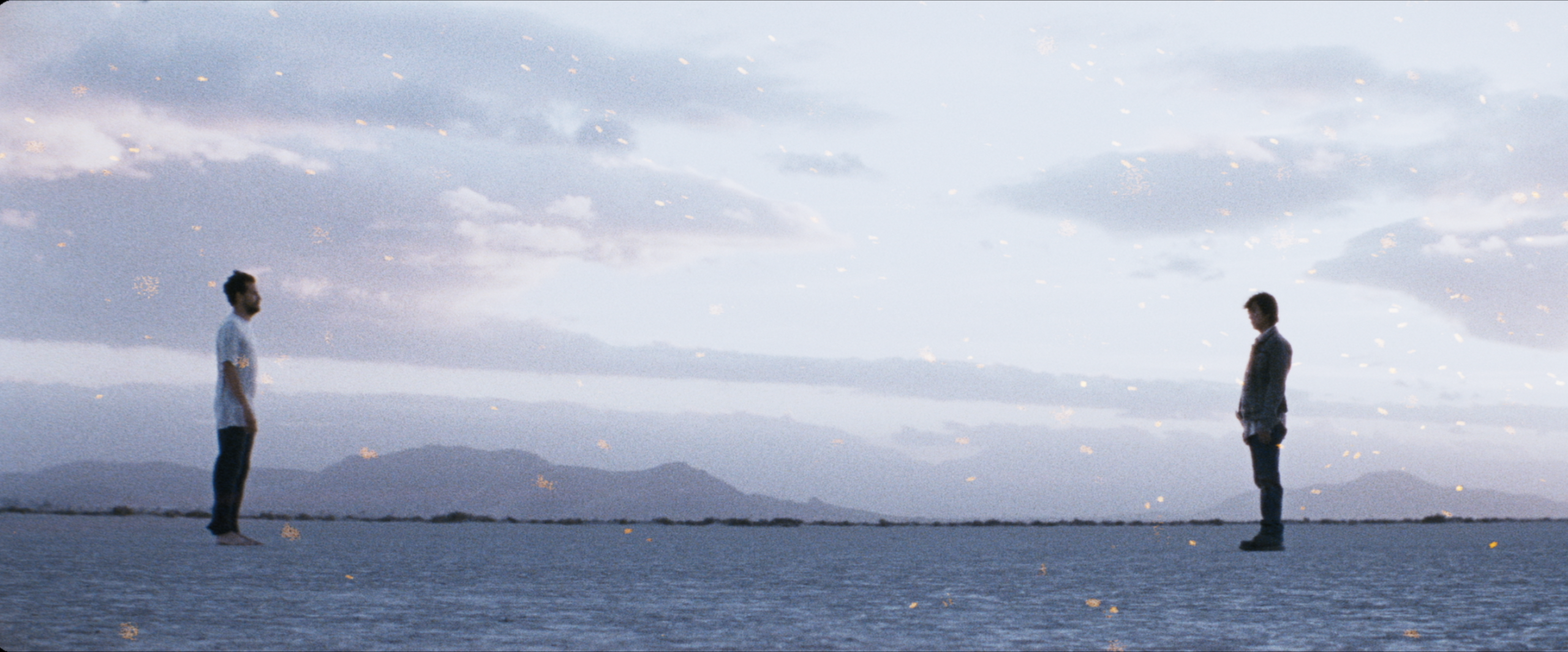Editor’s Note: This is part of our coverage of South by South West (SXSW) 2023.
By definition, the Texas borderlands are where one artificial nation bleeds—too often literally—into another. It’s a region where metaphorical walls between languages and cultures crumble while physical walls are breached and scaled, a space where a fictitious line is as real as family or hunger. In the world of Deadland, a new feature film that premiered in Austin at this year’s South by Southwest (SXSW) festival, it’s also a place where even more primordial veils are pierced: those between past and present, life and death.
Deadland, the directorial debut of University of Texas at Austin-educated Lance Larson, opens with a pair of Border Patrol agents scanning through binoculars for human activity in the West Texas desert. An Anglo agent, portrayed with smoldering intensity by actor McCaul Lombardi, is griping that migrants rescued by the Border Patrol are insufficiently “grateful.” Ángel Waters (Roberto Urbina), a Latino agent and the film’s protagonist, is responding coolly when a van hauling drugs appears in the distance. The pair gives chase, ultimately confiscating the narcotic cargo but letting the teenage driver go free. The driver, the Anglo agent notes, does not say “thank you.”
At this point, you might think you’re in for a border action film mixed with a morality tale about racist Border Patrolmen. That’s not entirely wrong, but Deadland is about to get much weirder than all that.
“My heart is in El Paso,” the Stranger rasps.
The film’s title appears and fades, and soon Waters encounters a Mexican man preparing to wade the Rio Grande. Waters tries to warn the migrant about the heavy current, but the man enters and is swept downriver. The agent finds him washed up dead, then zips him into a black body bag in the back of his garish green-and-white SUV. Later, as Waters is driving away from the scene of his grim find, a soft song is heard from the rear seat: “Corazones partidos, como tierras y ríos,” as the body bag slowly starts to unzip. The dead man, identified in the closing credits only as “the Stranger,” suddenly rises into sight in the rearview mirror and, for the first of many times throughout the 90-minute film, demands that Waters take him to El Paso. “My heart is in El Paso,” the Stranger rasps.
Meanwhile, Waters’ pregnant wife has come home from work to find an unknown man—old and rambling and possessed of a habit of singing the same song about broken hearts as the Stranger—who tells her that he’s Waters’ long-lost father.
To reveal much more of the plot would be a disservice. Hints are sprinkled generously throughout the film, but the revelation they suggest is strange enough that—judging by the gasp among the audience at the premiere showing—the twist will land for most viewers. Suffice it to say, the film takes the long way to arrive at a satisfying father-son conclusion.
Throughout Deadland, the movie’s more abstract themes are reinforced through a repeating voiceover in Spanish, revolving around mysterious lines like “the horizon is just the limit of what we can see” and “there’s a huge tree that everyone sees, with its enormous branches, but there’s another tree that no one sees, because it grows in reverse.”
Other voiceover lines critique more obviously the imaginary nature of national borders: “Only fools believe a man can be contained by something that doesn’t exist.”

The movie features typically beautiful shots of West Texas but doesn’t overly rely on that expansive landscape (in fact, the movie was partly shot in Oklahoma). The most memorable images are probably from a series of desert dream sequences that take place in the (this reviewer presumes) titular tierra muerta, along with just about any shot that lingers on the haunting and enigmatic facial expressions of Luis Chávez, who plays the Stranger.
In a way, the film feels both of and for the Trump-era, a time when the sort of folks who go to SXSW premieres were more engaged with the topics of immigration and the border than before or after. These days, you have to strain your ears to hear any outrage about President Joe Biden rolling out Trumpian crackdowns on asylum access, and the Democratic Party as an institution has reentered its arguably natural state of prioritizing political caution over immigrant rights. It’s too much, of course, to ask movies to fix our intractable socioeconomic problems. But, hey, a film like Deadland sure can’t hurt.







